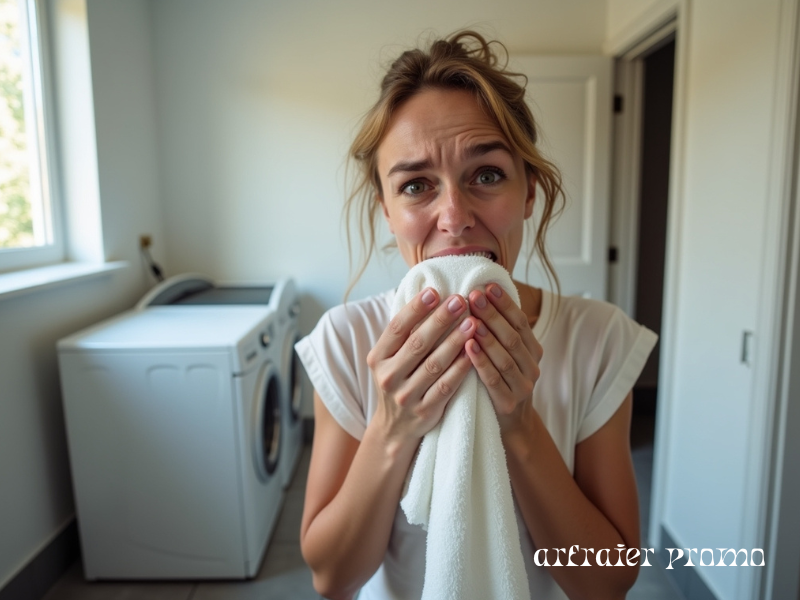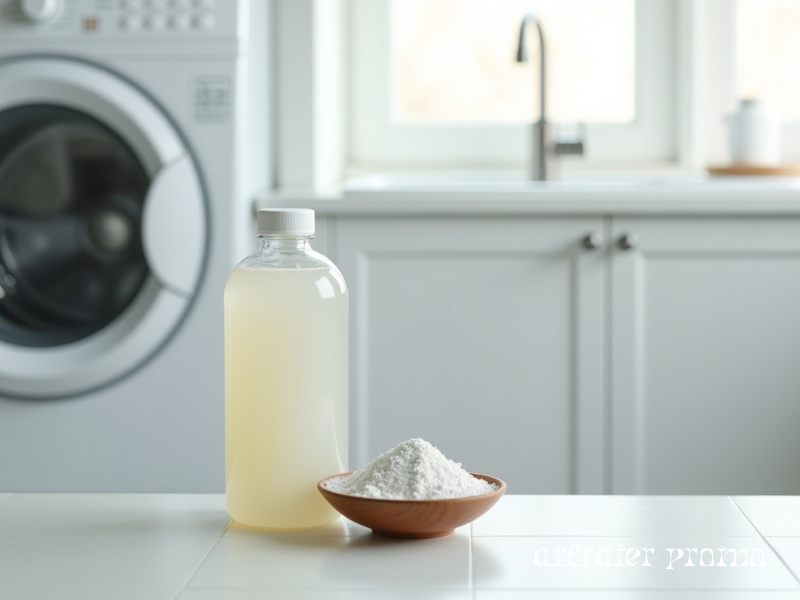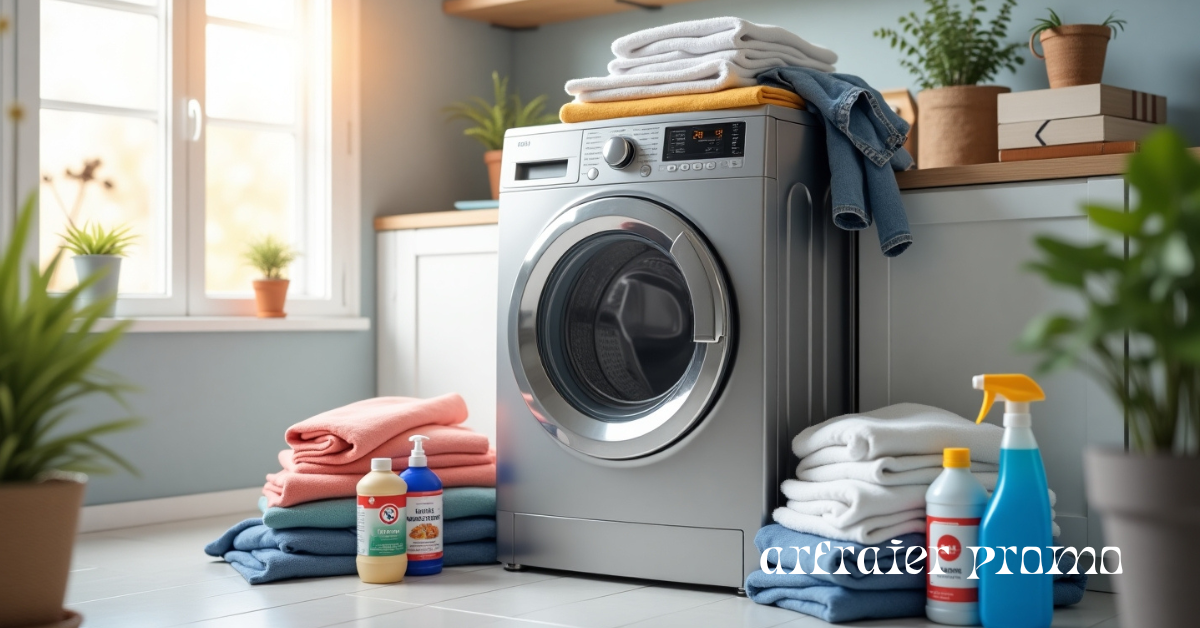If you’ve ever pulled a “freshly washed” towel from the laundry and noticed it smells sour, musty, or even like a wet dog — you’re not alone. Many people deal with stinky towels, no matter how often they wash them. The good news is that there’s nothing mysterious about it. Towels develop odor for simple reasons — and once you understand what’s causing it, you can easily bring them back to life.
Let’s explore why towels stink, what those different odors actually mean, and the easiest ways to get them smelling clean again.
Why Towels Smell (Even After Washing)
Towels go through a lot — they soak up water, soap, skin oils, and sweat every single day. When they don’t dry completely, or when detergent and fabric softener build up over time, they become the perfect home for bacteria and mildew.
Those bacteria are what produce the “funky” or sour smell, even after washing. Many people try to fix this by adding more detergent, but that actually makes the problem worse. The excess soap doesn’t rinse out fully, trapping moisture and odor deep inside the fibers.
Think of it like this: your towel might look clean, but deep down, it’s holding on to residue that keeps recycling the smell.
If your towels still smell even after several washes, the real problem might be your washing machine. Detergent residue and moisture can trap bacteria inside the drum. To fix this, make sure you clean your washing machine properly every few weeks to prevent odor transfer.
Common Causes of Smelly Towels
There’s not just one reason your towels stink — it’s usually a combination of habits and environment. Here are the most common causes:
1. Leaving Towels Damp Too Long
When towels sit damp in the washer or on the bathroom floor, mildew begins to grow. Even a few hours of moisture can create that sour smell.
2. Using Too Much Detergent or Fabric Softener
It seems logical that more soap equals cleaner towels, but it actually traps residue in the fibers. This buildup locks in bacteria and odor over time.
3. Washing in Cold Water Only
Cold water doesn’t always kill odor-causing bacteria. Hot water helps dissolve detergent and sanitize better.
4. Poor Air Circulation While Drying
Hanging towels in small, humid spaces (like bathrooms without ventilation) prevents them from fully drying.
5. Hard Water Buildup
Mineral deposits from hard water cling to fibers, leaving a stale or sour odor behind.
6. Old or Overused Towels
Over time, towel fibers lose their absorbency and start holding moisture longer — which leads to that never-ending stink.
What Different Towel Smells Mean
Not all towel odors are the same. In fact, the type of smell can tell you what’s happening inside the fabric. Here’s what those weird towel smells might mean — and how to fix them.
Towels That Smell Even After Washing
This is the most common issue. If your towels smell musty or sour right after washing, it usually means bacteria and detergent residue are trapped in the fibers.
Fix: Run a deep-clean cycle with one cup of white vinegar (no detergent). Then rewash using half a cup of baking soda. Dry thoroughly in the sun or a high-heat dryer.

Towels That Smell Like Corn Chips
Believe it or not, that “corn chip” smell comes from specific bacteria — often Corynebacterium — which thrive in warm, moist environments.
Fix: Wash towels in hot water with vinegar to break down residue and kill bacteria. Make sure to dry completely before folding.
Towels That Smell Like Wet Dog
The wet-dog scent is usually mildew mixed with trapped body oils.
Fix: Wash in hot water with vinegar, skip the fabric softener, and dry completely. Sun drying helps eliminate bacteria naturally.
Towels That Smell Like Onions
An onion-like smell can develop from sweat and natural body oils that weren’t fully washed out.
Fix: Soak towels in a bucket of hot water with one cup of vinegar for 30 minutes before a normal wash cycle.
Towels That Smell Like Pee or Cat Pee
This is caused by ammonia buildup or old detergent residue that’s reacting with moisture.
Fix: Use the double-clean method — first wash with vinegar, then rewash with baking soda. Repeat once a month to prevent it from returning.
Different smells, same core problem: bacteria, moisture, and buildup. Once you remove those, your towels will smell fresh again.
Easy Fixes to Get Rid of Towel Odor
Here’s a step-by-step guide that works for almost every kind of towel odor. It’s simple, safe, and doesn’t require expensive products.
1. Deep Clean with Vinegar and Baking Soda
-
Load your towels into the washer.
-
Add 1 cup of white vinegar (no detergent).
-
Run a hot water cycle.
-
Next, rewash the same towels using ½ cup of baking soda.
-
Dry completely — in direct sunlight if possible.

This two-step method strips residue, kills bacteria, and neutralizes odors naturally. For a deeper explanation of how vinegar helps refresh fabrics, Southern Living shares some helpful insights here.
2. Stop Using Fabric Softener
Fabric softeners make towels feel fluffy, but they coat the fibers in a waxy film that locks in smells and reduces absorbency. Instead, use vinegar once a month to keep them soft and fresh.
3. Use the Right Amount of Detergent
Most people use twice as much detergent as they need. Try cutting your usual amount in half — it’ll rinse more cleanly and reduce residue buildup.
4. Always Dry Towels Completely
Never let towels sit damp in the washer or folded when slightly wet. Either use a hot dryer or hang them in full sun. Airflow is key to stopping mildew before it starts.
5. Clean Your Washing Machine
Sometimes, the problem isn’t your towels — it’s your washer. Run an empty hot cycle with vinegar and baking soda monthly to keep the drum free of mold and detergent buildup.
How to Keep Towels Smelling Fresh
A few consistent habits can keep your towels fresh and odor-free all year round.
Habit |
Why It Helps |
Frequency |
|---|---|---|
| Wash towels every 3–4 uses | Stops bacteria growth | Weekly |
| Avoid fabric softeners | Prevents residue buildup | Every wash |
| Dry completely | Prevents mildew and damp smell | Every wash |
| Store in a dry area | Avoids moisture reabsorption | Always |
| Run vinegar rinse | Removes detergent film | Monthly |
| Don’t overload washer | Ensures proper rinsing | Every wash |
Small changes like these make a big difference. Once you switch to less detergent and better drying, that musty smell rarely comes back.
When to Replace Old Towels
Even with perfect care, towels don’t last forever. Over the years, their fibers break down and start trapping moisture more easily. If you’ve tried deep cleaning multiple times and the smell always returns, it’s probably time for new ones.
Signs your towels need replacing:
-
Persistent odor even after hot washes
-
Rough or scratchy texture
-
Thin or worn-out fabric that doesn’t absorb water
-
Discoloration or stiffness
Most bath towels last around 2–3 years with regular use. After that, their absorbency and freshness fade naturally.
Tips for Long-Lasting Freshness
Here are a few final tricks that people often overlook:
-
Shake towels out before drying. It helps air circulate through the fibers for faster, more even drying.
-
Don’t overload your laundry loads. Towels need space to rinse and spin properly.
-
Switch to white vinegar instead of softeners. It’s natural, effective, and keeps your towels fluffy.
-
Use sunlight whenever possible. UV rays act as a natural disinfectant and leave towels smelling cleaner than any dryer sheet can.
-
Clean towel racks and hooks. They can also hold moisture and bacteria.
Once you develop a good laundry rhythm, you’ll notice how much fresher and softer your towels stay.
Conclusion
Smelly towels are one of those small annoyances that almost everyone faces at some point — but they’re easy to fix once you know why they happen. The main causes come down to moisture, bacteria, and buildup, not bad detergent or old washing machines.
By deep-cleaning with vinegar and baking soda, drying thoroughly, and washing with less detergent, you can bring your towels back to life in just one or two washes.
A few small laundry changes — like skipping fabric softeners and ensuring full drying — can make a big difference. Soon, your towels will come out of the wash not just clean, but truly fresh.
Frequently Asked Questions (FAQs)
Q1: Why do my towels smell bad even after washing?
This happens when detergent residue and bacteria stay trapped in the fibers. Use a vinegar and baking soda wash to remove buildup and kill odor-causing germs.
Q2: Why do towels sometimes smell like corn chips or wet dog?
Those smells come from bacteria that grow when towels stay damp too long. Hot water and proper drying eliminate them.
Q3: Why do my towels smell like pee or cat pee?
That ammonia-like smell is from detergent buildup or trapped body residue. A vinegar wash followed by baking soda usually clears it up.
Q4: Can fabric softener cause towel odor?
Yes. Fabric softeners coat fibers, trapping odor and reducing absorbency. Use white vinegar instead — it softens naturally without buildup.
Q5: How often should I wash my towels?
Ideally, every three to four uses. Regular washing prevents bacteria growth and keeps towels fresh longer.






